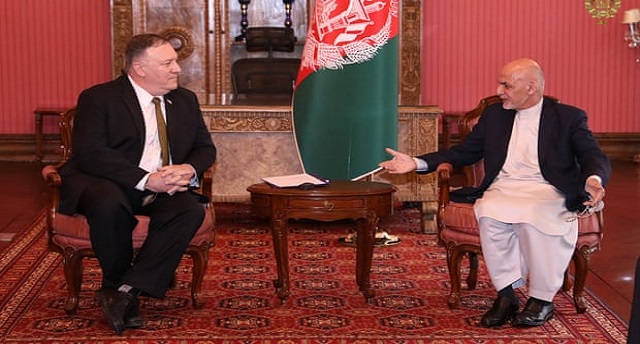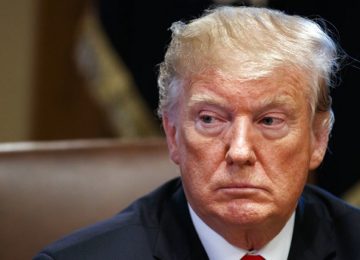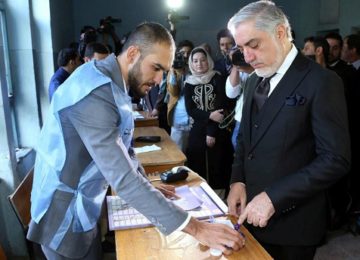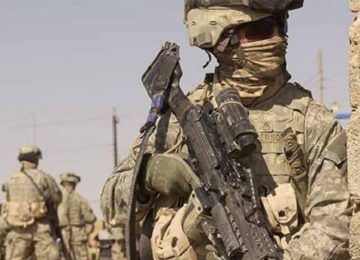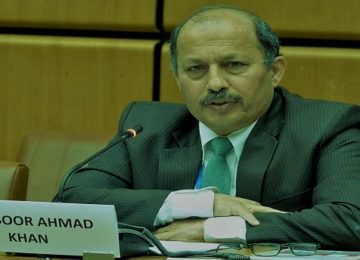March 24, 2020
The US has said it will cut its aid to Afghanistan by $1bn, blaming the failure of President Ashraf Ghani and his main political rival, Abdullah Abdullah, to agree on a unity government for talks with the Taliban.
A further $1bn could be cut in 2021, the US secretary of state, Mike Pompeo, said after a surprise visit to Kabul on Monday failed to persuade the two men to make a deal. Pompeo suggested the aid could be restored if they changed their minds.
“The United States is disappointed in them and what their conduct means for Afghanistan and our shared interests,” Pompeo said in a sharply written statement. “Their failure has harmed US-Afghan relations and, sadly, dishonours those Afghan, Americans, and coalition partners who have sacrificed their lives and treasure in the struggle to build a new future for this country.
“Because this leadership failure poses a direct threat to US national interests, effective immediately the US government will initiate a review of the scope of our cooperation with Afghanistan,” Pompeo added. “Among other steps, we are today announcing a responsible adjustment to our spending in Afghanistan and immediately reducing assistance by $1 billion this year. We are prepared to reduce by another $1 billion in 2021.”
The secretary of state warned that an array of other US projects, as well as US pledges at donor conferences, would come under review. He blamed the Afghan leaders for failing to abide by a joint declaration with the US made on 29 February, to send a unified team to talks with the Taliban, and to free Taliban prisoners.
In a separate agreement on 29 February with the Taliban, the US said 5,000 Taliban prisoners would be released in exchange for 1,000 government soldiers held by the insurgents. But the Afghan government insisted it had not agreed to free that many prisoners at once before broader peace negotiations had gotten under way.
Pompeo told reporters that the first cut in assistance could still be averted if Ghani and Abdullah changed course, formed an “inclusive team” and went ahead with the prisoner exchange. “We’re hopeful, frankly, they’ll get their act together and we won’t have to do it, but we are prepared to do that if they can’t,” he said.
After spending more than eight hours in Kabul in unsuccessful talks with Ghani and Abdullah, Pompeo flew to Doha where he held hour-long talks late on Monday night with the top Taliban negotiator, Mullah Baradar, at a Qatari air base.
Pompeo said that in contrast to the Afghan government, the Taliban were keeping their end of the 29 February deal. “They committed to reducing violence; they have largely done that, and then they are working towards delivering their team to the ultimate negotiations,” he said.
The rift in Kabul and the breakdown of a planned prisoner exchange with the Taliban have stalled progress towards peace talks following the agreement of the temporary ceasefire, under which the Taliban said it would not attack US troops as they withdrew from the country.
US and allied troops have begun their withdrawal but Taliban attacks on Afghan targets have almost returned to their pre-ceasefire level and there is no immediate prospect of political negotiations between the insurgents and government officials that were supposed to start on 10 March.
The two sides held talks via Skype on Sunday but there was no sign of a breakthrough on the core disagreement. The Afghan government wants a staggered release of prisoners but the Taliban are demanding that Kabul free all 5,000 of its fighters at once.
The official number of coronavirus cases in Afghanistan stands at 34 but testing there is limited and the disease is expected to be much more widespread, posing dangers of an epidemic among prisoners in particular.
“Everyone clearly understands the coronavirus threat makes prisoner releases that much more urgent,” wrote the US special envoy for Afghan peace talks, Zalmay Khalilzad.
Pompeo staked his diplomatic reputation on the deal with the Taliban, which he signed in Qatar on behalf of the US. He took the decision to fly at a time when face-to-face diplomacy has been reduced to a minimum. The state department has urged US citizens not to travel abroad.
Source: The Guardian
Disclaimer: Views expressed on this blog are not necessarily endorsed or supported by the Afghan Studies Center and Center for Research and Security Studies, Islamabad.



